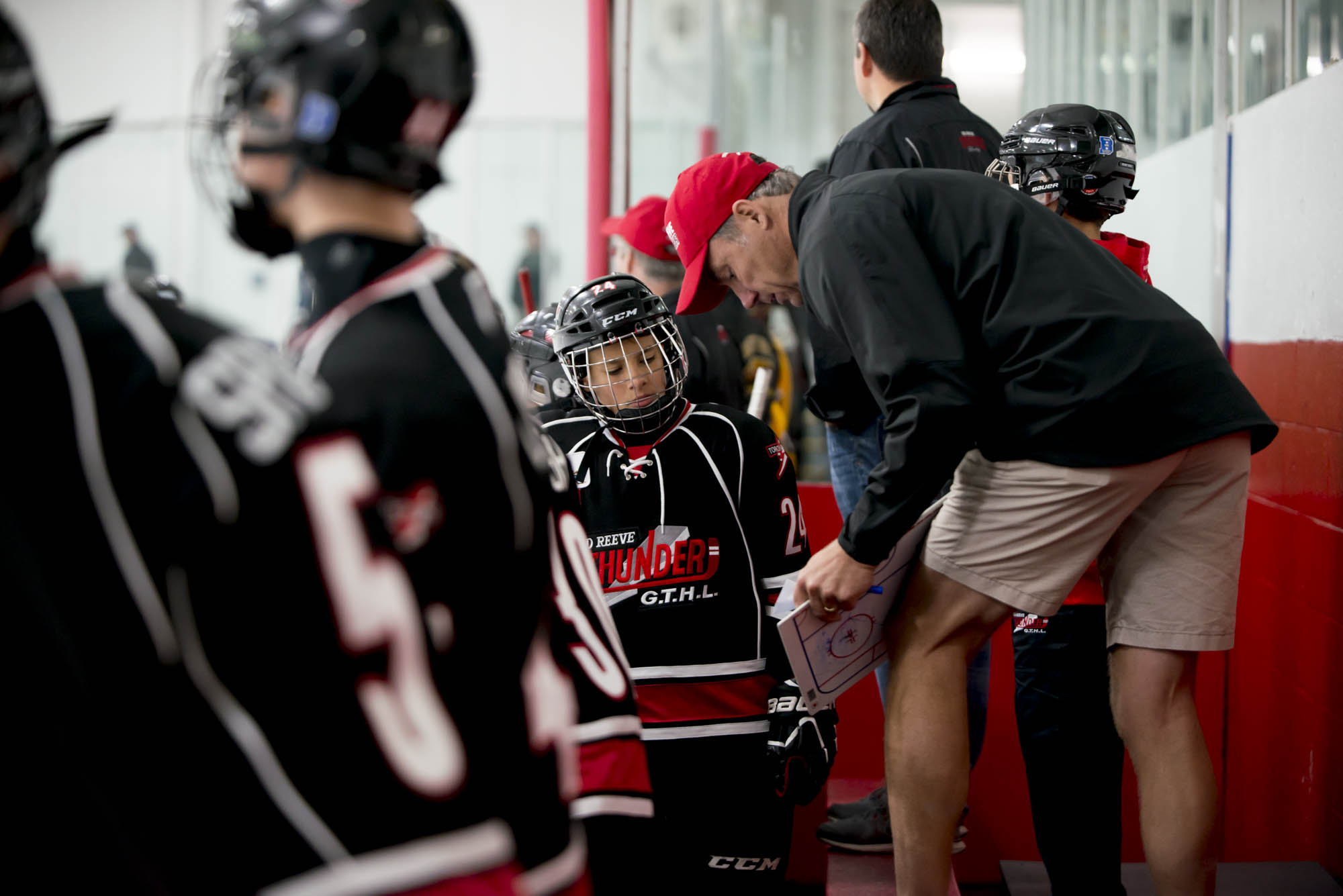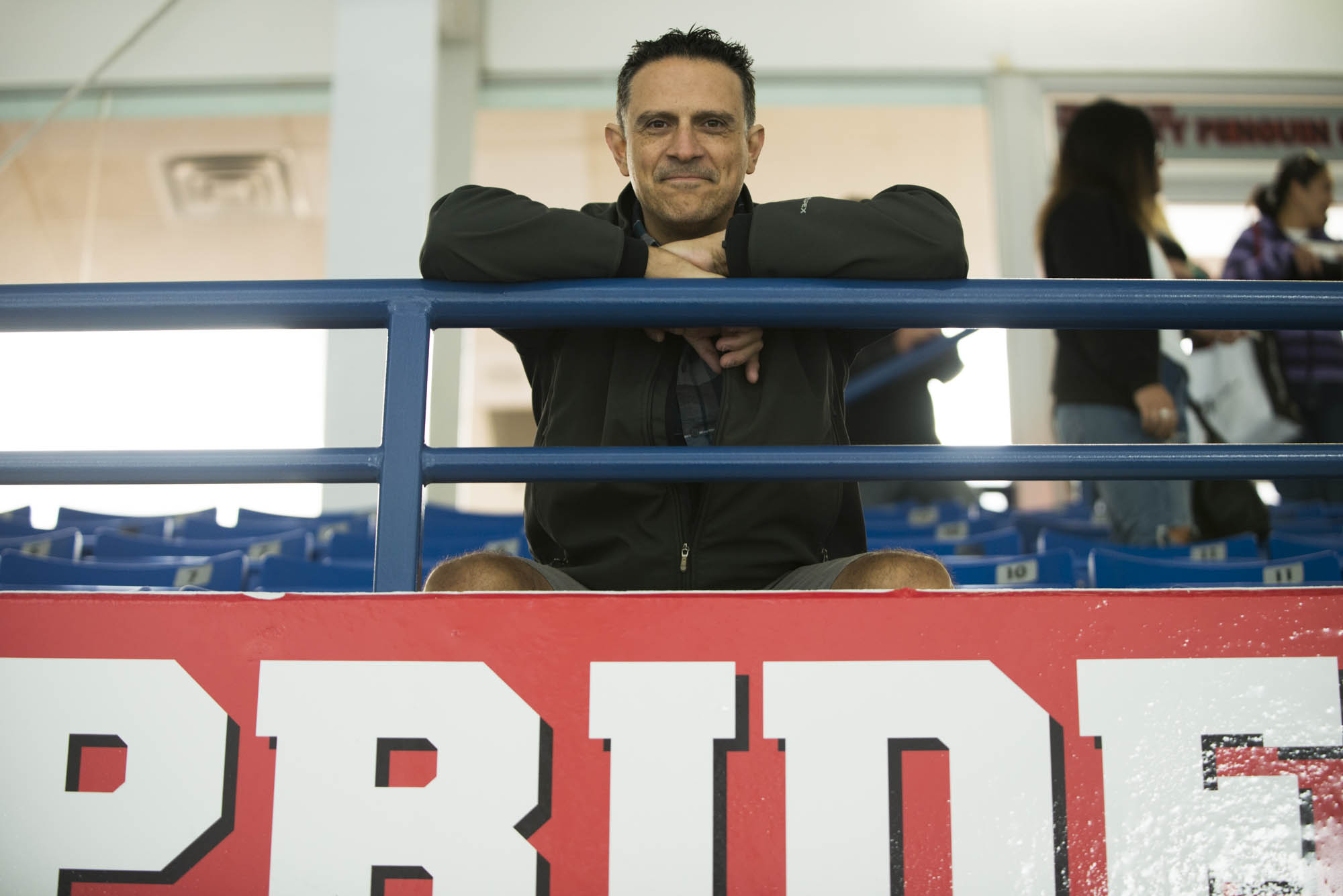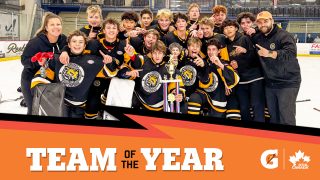It’s one of the sporting world’s greatest demonstrations of sportsmanship and respect – the handshake line at the end of a grueling, hard fought, sometimes nasty, NHL playoff series. Unlike many other professional sports, the end of a hockey series is not marked by lengthy showboating by the winning team, but rather by showing respect for the other side. The handshake line transcends the result, and allows the players and fans of both teams to step back and appreciate the game itself, the rivalry and the intense effort put forth by both teams, where the outcome may have been decided by the odd lucky bounce.
It is a tradition that dates back over 100 years, and is one of the good things to have been picked up from the pros by minor hockey teams all across Canada. The handshake line is a microcosm of what sport can and should be in building good character and showing respect.
Many people speak about the life lessons that can be acquired through sport. And there’s academic research to confirm that conventional wisdom. Studies by Canadian and U.S. research institutes have demonstrated the correlation between participation in organized sports and positive effects on various aspects of young people’s personal and social development, including self-esteem, goal-setting and leadership. (letkidsplay.ca; and aspenprojectplay.org)
However, as youth sports have become more and more competitive and intense over the last couple of decades, these intangible benefits of participation in sport have also come into question. It has been argued that sport does teach children lessons, but not always good ones – that sometimes sport brings out the less attractive sides of human nature. We have all, unfortunately, witnessed the win-at-all-costs attitude and behaviour on display in local rinks (often coming more from certain coaches and parents than the players themselves), and the lack of respect for opponents and officials. And a recent study indicated that a major factor which makes sports less fun and leads some kids to leave the game is simply having every mistake scrutinized and critiqued by adults, resulting in the child losing ownership of the experience. Such children may have feelings of failure and embarrassment – hurting their confidence and discouraging them from trying other activities, either in sports or in other fields. (changingthegameproject.com)
The on-going challenge for all of us involved in youth sport is to play a role in fostering a positive environment. Fundamentally, sport programs should be values-based, designed to increase ethical conduct and reduce negative behavior. (Canadian Sport Policy, 2012). Fairness, respect for the rules, and cooperation are the building blocks that allow games to remain fun, keep kids in sport and thereby enable them to benefit in these intangible ways – developing as good teammates and as good citizens.
The Greater Toronto Hockey League has numerous programs and policies designed to promote positive sport culture. It starts with the agreement of every player, family and team official when they sign up and become bound by the League’s rules and regulations. This includes the GTHL Code of Conduct, which provides that in the course of GTHL activities, all athletes, coaches, officials, parents, employees and volunteers shall conduct themselves in a fair and responsible manner, and shall refrain from behavior that is disrespectful, offensive, abusive, racist or sexist.
 A key focus is, naturally, on our coaches. All GTHL coaches must take designated training, which includes participating in the coaches’ segments of the “Respect in Sport Program.” This Program provides fundamental training tools to enable coaches and youth leaders to become strong role models for the young athletes under their guidance; to build a culture of respect; and to educate coaches on the prevention of bullying and harassment. Our referees are also put through training programs that deal not only with the playing rules, but the importance of keeping games both safe and fair; the role officials play in setting standards of behavior; and training tools for effective communication with coaches and players.
A key focus is, naturally, on our coaches. All GTHL coaches must take designated training, which includes participating in the coaches’ segments of the “Respect in Sport Program.” This Program provides fundamental training tools to enable coaches and youth leaders to become strong role models for the young athletes under their guidance; to build a culture of respect; and to educate coaches on the prevention of bullying and harassment. Our referees are also put through training programs that deal not only with the playing rules, but the importance of keeping games both safe and fair; the role officials play in setting standards of behavior; and training tools for effective communication with coaches and players.
Where there are serious allegations of misconduct, the GTHL implements its Harassment, Abuse, Bullying and Misconduct Policy, which provides for investigation and sanctions. Recently, the GTHL has also adopted a Social Media Policy, which recognizes the importance of participating in online interactions through social media in a positive and responsible manner. It should also be noted that GTHL conduct rules apply not only to players and coaches, but also to spectators, all of whom are expected to behave in a “sportsmanlike manner”. (See GTHLCanada.com – policies and rules.)
Effective for the 2016-17 season, the GTHL and other OHF member partners have adopted the Respect in Sport Parent Program, an online resource that deals with perspectives on winning and losing; relationships with coaches, referees, opponents and other parents; players’ physical development; injury management; the risks of “misplaced enthusiasm;” and many other challenges of being a sport parent.
Finally, participants who feel aggrieved regarding their status with a team, a club or the league may appeal to independent committees of the GTHL Board of Directors. The GTHL appeal process (GTHLCanada.com/policies-and-forms) seeks a fair and reasoned outcome based on a combination of the Committee’s extensive hockey experience, the governing rules and principles of natural justice.
These are just some of the programs and policies in the GTHL that encourage and enforce the development of principled  behaviour. It’s far from perfect, but a genuine effort is made to focus on the values that our game can build, rather than merely the games, standings and trophies.
behaviour. It’s far from perfect, but a genuine effort is made to focus on the values that our game can build, rather than merely the games, standings and trophies.
As part of promoting a positive sport environment, the GTHL strives to be open to Canadians of all backgrounds. Like Greater Toronto itself, League participation has become more and more diverse over the years. Although there are certainly challenges to participation in hockey based on cost and time factors, inclusion in our sport should not be constrained by cultural issues. Hockey should be a welcoming place in which to play together, make social connections and develop good character traits.
Especially in a community like Toronto – reported to be the most culturally diverse city in the world – the Governing Body for the sport that, to many people, “defines Canada”, has a special responsibility to play a role in uniting Canadians – both long-standing and new.
The GTHL (like any large community organization) is subject to complaints from time to time that raise larger social issues. Recently, an application was filed with the Human Rights Tribunal of Ontario to the effect that the names and logos of some teams in the GTHL, the Mississauga Hockey League and the Ontario Women’s Hockey Association, which have aboriginal themes, are culturally insensitive. Many of these team names and logos are common in other leagues and in other sports, have been used for decades and are the subject of debate in the public forum.
Although the GTHL was not named in the application, when it became aware of the issue, the first thing our Board decided was that we needed to reach out and listen to the people who fully understand this issue and may be affected by it. Accordingly, the GTHL consulted with experts in aboriginal law and with First Nations groups and leaders to seek their guidance. We met with Chiefs and Grand Chiefs and the Aboriginal Sport & Wellness Council of Ontario (ASWCO). And of course, we consulted with the hockey clubs identified in the application.
As a result of our consultations and, in particular, with the guidance of ASWCO, the GTHL Board has adopted a Policy on team names and logos. To their credit, it is fully supported by the GTHL clubs in question. The Policy notes that names and logos used by GTHL teams should be reflective of a respectful and inclusive environment. The Policy provides that GTHL teams should not use “generic” Indigenous-themed names or logos. In addition, GTHL teams should not use “specific” Indigenous-themed names or logos (i.e. those that specifically refer to or depict certain identifiable Indigenous nations, bands or persons), unless consent has been obtained from the governing or representative body of the particular Indigenous group. In the case of a specific name or logo which is used by a GTHL team under license from an NHL hockey club (for example, the Chicago Blackhawks), the Policy provides that the GTHL team may rely upon consent provided by the particular Indigenous-referenced group to the NHL club, provided that consent remains in effect. Any GTHL teams which are not in compliance with this Policy are to take steps to come into compliance promptly.
The GTHL is aware that this Policy – even though it has been developed through dialogue with First Nations leaders and ASWCO – may not be acceptable to everyone in the Indigenous community. We plan to monitor this issue on an ongoing basis and adapt our Policy accordingly. As we proceed, we intend to deal with this particular matter as we deal with all aspects of administering our sport – that is, by endeavouring to provide an environment in which all individuals are treated in the spirit of respect.
Of course, in all areas of sport, codes of conduct, rules and policies can only go so far. The promotion of a positive environment for the benefit of our young athletes depends primarily on the people in hockey and how they conduct themselves: the role models in professional hockey, minor hockey coaches, club and team managers, referees, administrators at all levels, and parents. Minor hockey will be what we collectively make it. At its best, a fun, safe, competitive and demanding experience for young players, where good character can be formed, displayed and reinforced.
Perhaps it’s a cliché, but the GTHL motto – “Play Now; Win Forever” – retains an essential message. Keep it in mind as you head to the rink this season.








